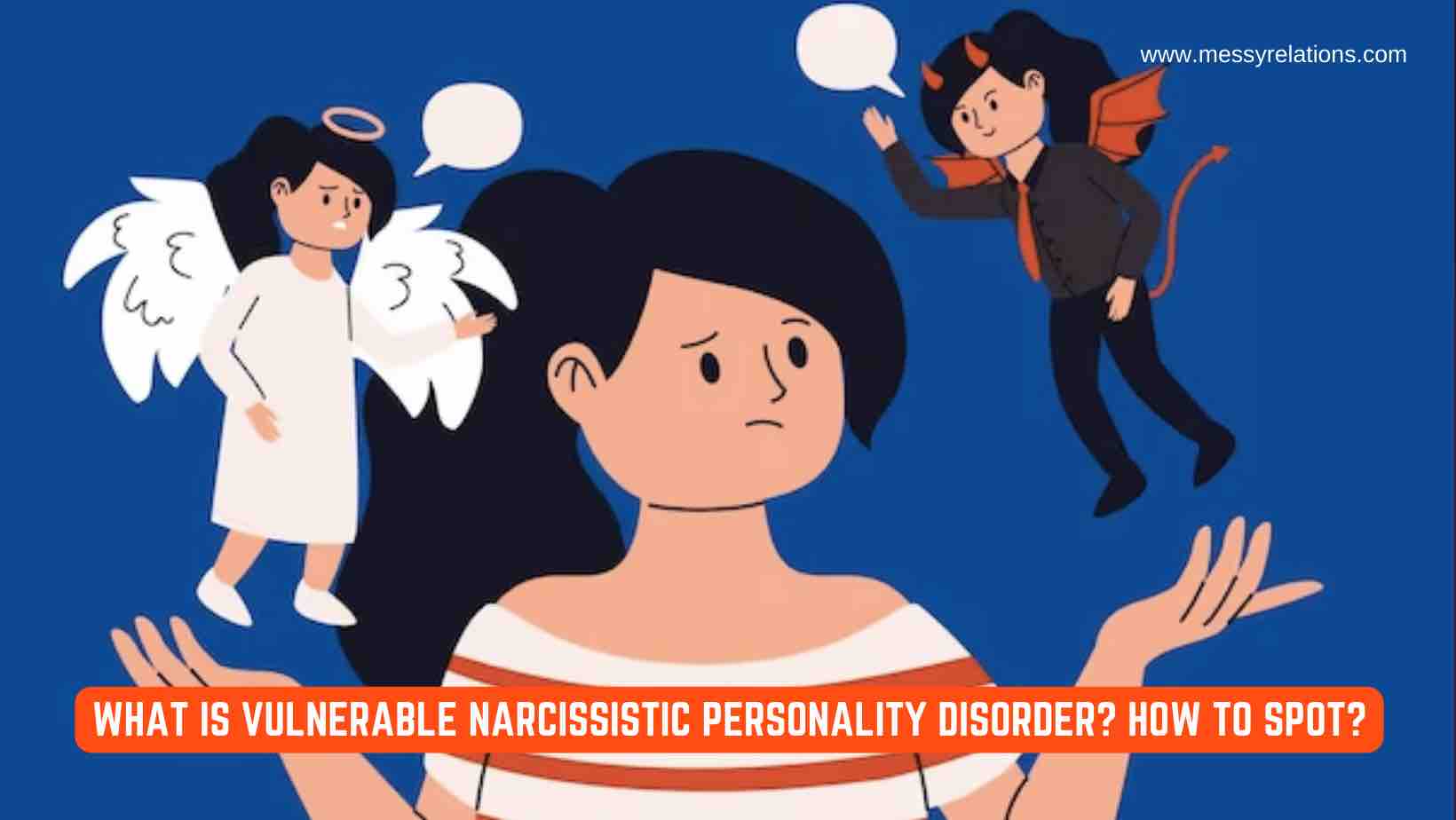Navigating relationships can be challenging, especially when dealing with individuals who exhibit traits of Narcissistic Personality Disorder (NPD). This complex psychological condition can have a profound impact on relationships, causing distress and emotional turmoil for the partners involved. Recognizing the signs of NPD is crucial for maintaining emotional well-being and making informed decisions about the future of the relationship. In this article, we will delve into 10 key Narcissistic Personality Disorder symptoms that may manifest in relationships.
Narcissistic Personality Disorder Symptoms
1. Lack of Empathy
One of the key Narcissistic Personality Disorder symptoms is a pervasive lack of empathy. Individuals with NPD often struggle to understand or share in the emotions of others, leading to a profound sense of emotional disconnect within the relationship. This stems from their inflated sense of self-importance and preoccupation with personal achievement. They may exploit or manipulate others for their benefit, showing little remorse. This empathy deficit can strain relationships, as NPD sufferers may struggle to connect on an emotional level. Therapy can help address this symptom, aiming to foster greater awareness of others’ emotions and encourage more genuine, compassionate interactions.
They may dismiss their partner’s feelings, trivialize their concerns, or even exploit their vulnerabilities for personal gain. This emotional disconnect can lead to feelings of neglect and isolation in the partner.
2. Excessive Self-Centeredness
Excessive self-centeredness is another prominent trait among those with Narcissistic Personality Disorder. These individuals constantly prioritize their own needs, desires, and achievements above all else. In a relationship, this self-centered behavior can manifest as a partner who consistently dominates conversations, dismisses their partner’s achievements, and expects constant attention and validation. This self-centeredness often leads to a disregard for others’ needs, exploiting relationships for personal gain. Their inflated sense of entitlement fuels a belief that they deserve special treatment. This symptom hinders genuine connections and fosters a superficial social facade. Through therapy, individuals with NPD can work on recognizing and addressing their self-centered tendencies, gradually embracing a more balanced perspective that acknowledges the value and emotions of others.
This behavior can lead to an unbalanced and unhealthy dynamic in the relationship.
3. Need for Admiration
A compelling need for admiration is a common Narcissistic Personality Disorder symptom. Partners with NPD may incessantly seek validation and praise from those around them, often exploiting their partner’s emotional energy to fulfill this need. This desire for admiration fuels their pursuit of attention and admiration, often overshadowing genuine connections. Consequently, relationships tend to be one-sided, with the individual exploiting others to meet their ego-driven demands. Addressing this symptom within therapy involves fostering self-esteem that’s not solely reliant on external validation, promoting healthier interactions rooted in genuine empathy and understanding rather than self-serving motives. This desire for admiration fuels their pursuit of attention and admiration, often overshadowing genuine connections. Consequently, relationships tend to be one-sided, with the individual exploiting others to meet their ego-driven demands. This constant demand for admiration can make the partner feel as though their own needs and opinions are being overlooked, leading to resentment and frustration.
Addressing this symptom within therapy involves fostering self-esteem that’s not solely reliant on external validation, promoting healthier interactions rooted in genuine empathy and understanding rather than self-serving motives.
4. Manipulative Behavior
Manipulative behavior is another characteristic trait of individuals with NPD. They may use charm, guilt, or even intimidation to manipulate their partner’s thoughts and actions. This manipulation can lead to a cycle of emotional turmoil, where the partner feels controlled and unable to assert their own desires or boundaries. This manipulation can be subtle or overt, aiming to control situations, people, or perceptions to suit their needs. They excel at charming or deceiving to further their agenda, often leaving victims emotionally and psychologically drained. Therapy for NPD involves addressing this manipulative tendency, fostering self-awareness, and learning healthier ways to interact that respect the autonomy and emotions of others, aiming for more authentic and less harmful connections.
Such behavior can severely erode the foundation of trust in the relationship.
5. Grandiose Sense of Self-Importance
A grandiose sense of self-importance is a striking feature of Narcissistic Personality Disorder. Partners with NPD often exaggerate their own achievements and talents, portraying themselves as superior to others. This behavior can create an imbalance in the relationship, as the partner may feel overshadowed and undervalued, leading to a sense of inadequacy.
6. Intense Jealousy and Envy
Jealousy and envy are emotions that can become problematic in relationships involving individuals with Narcissistic Personality Disorder symptoms.. These individuals may exhibit extreme jealousy when their partner receives attention or recognition from others, fearing that the spotlight might shift away from them. Their fragile self-esteem and need for constant validation drive feelings of envy, leading to resentment and even attempts to belittle or undermine others’ successes. This trait stems from their deep-seated insecurity and an insatiable desire to maintain an illusion of superiority. Therapy for NPD aims to address these emotions by fostering a healthier self-concept, allowing individuals to recognize and manage jealousy and envy, fostering more authentic interactions and reducing the harm caused to themselves and others.
7. Lack of Accountability
A lack of accountability is a significant Narcissistic Personality Disorder symptom that can create turmoil in relationships. Individuals with NPD often avoid taking responsibility for their mistakes or shortcomings. Instead, they may shift blame onto their partner or external factors. This behavior can lead to a toxic cycle where the partner is left feeling like they are always at fault, undermining their self-esteem and confidence.
8. Exploitative Tendencies
Exploitative tendencies are also common among those with Narcissistic Personality Disorder symptoms. These individuals may exploit their partner’s resources, emotions, or vulnerabilities for their own personal gain. This can include financial manipulation, emotional manipulation, or using their partner to advance their own goals. Such exploitative behavior can lead to a sense of being used and unappreciated in the relationship.
9. Difficulty in Handling Criticism
Difficulty in handling criticism is a trait that often characterizes Narcissistic Personality Disorder. Partners with NPD may react negatively and defensively to any form of criticism, no matter how constructive or well-intentioned it may be. This can create a challenging communication dynamic, as the partner may feel hesitant to express their concerns or thoughts, fearing an adverse reaction.
10. Lack of Genuine Intimacy
Genuine intimacy can be elusive in relationships with individuals displaying Narcissistic Personality Disorder symptoms. These individuals often struggle with forming deep emotional connections, as their self-centered nature prevents them from truly understanding and empathizing with their partner’s emotions. The relationship may feel shallow and lacking in emotional depth, leaving the partner yearning for a more fulfilling connection.
Conclusion
Recognizing the symptoms of Narcissistic Personality Disorder symptoms is essential for anyone navigating a relationship with someone who exhibits these traits. It’s important to prioritize your emotional well-being and establish healthy boundaries to protect yourself from the potential negative impacts of such a relationship. If you suspect that your partner may have NPD, seeking professional guidance and support can provide valuable insights and strategies for coping. Remember that a healthy relationship is built on mutual respect, empathy, and open communication – qualities that may be difficult to achieve when dealing with Narcissistic Personality Disorder symptoms.




